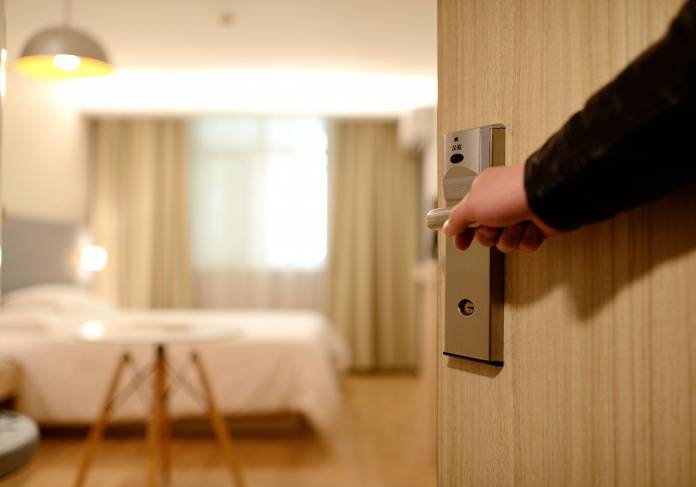
The Aruba company believes that in the next 10 years, hotels and companies in the hospitality sector will proactively use technology to offer complete and improved experiences to their guests.
After a few years of transformation in which the entire industry embraced life-critical technology solutions, hotels and venues have become increasingly adept at delivering seamless digital experiences. Looking ahead, however, this reliance on digital technology poses potential challenges for an industry built on human experiences. Aruba has worked with global trends agency Foresight Factory to uncover five ways hospitality businesses will adapt to changing consumer demands, in order to provide the perfect balance between the digital and physical worlds.
1. Hotel companies will dispense free presence options: In line with current trends contactlesssuch as digital check-in and biometric payments, hospitality companies will be able to welcome guests without being present at their premises, using innovative technologies such as augmented reality (AR), virtual reality (VR) and the metaverse to offer experiences no presence to “visitors” anywhere in the world.
2. The customer experience will start long before they arrive and continue long after they leave (the premarket awakening”): Forget looking at photos or scanning a menu. In the future, guests will no longer do anything without first trying the fully interactive and immersive digital option. As the virtual experience becomes a non-negotiable precursor to the real event, companies will begin to offer more creative, elaborate and personalized “pre-market” options. Meanwhile, “post-stay” services will also be offered, which will complete the overall experience.
Hotels and venues have become increasingly adept at delivering seamless digital experiences
3. The user experience will have become a collective task: In the future, hospitality companies will form fully connected business communities around themselves, powered by the same network for the sole purpose of delivering a complete guest experience. By sharing data, venues will be able to offer food and drink recommendations based on what customers have ordered elsewhere, or recommend local activities and automatically confirm availability. On the other hand, community location and wayfinding services could eliminate inconveniences such as waiting times by giving venues the ability to accurately track arrival and offer “virtual” queues.
4. Hospitality companies will be able to treat customers based on how they feel and not just based on what they say: The best customer service is giving him what he wants, even before he knows he wants it. In the future, automated on-site systems and biometric data will allow venues to read and react to physical cues from their customers, adjusting music, lighting and scent to match a mood, or catering to first signs of hunger with the help of predictive Artificial Intelligence (AI).
5. Data has become a two-way street, as hospitality companies are expected to share information with their customers: As customers become more concerned about making the right decisions (particularly when it comes to travel) and are more able to do so thanks to technology, hospitality establishments must be prepared to share data to help them make better decisions. your decisions. In addition, they must be prepared to offer more options that cater to the ecological, health, and ethical sensitivities of their customers, or risk losing business to more forthcoming and considerate competitors.
“Creating a personalized experience based on data and knowledge will allow us to improve service levels”, indicates Sanjeev Katwa, Tottenham Hotspur Chief Technology Officer. “Similarly, AI and predictive models will ensure much more efficient use of the edge, create a sustainable model and ensure repeat customers. Greater automation, through state-of-the-art technology systems, will help venues read and react to guest cues throughout their experience.”
Meeting these expectations requires being able to quickly make sense of collected data and respond accordingly, so deploying Wi-Fi solutions just for connectivity is no longer enough.
Iker del Fresno, Country Manager of HPE Aruba in Spain considers that in the coming years technology will completely revolutionize the hospitality sector by merging the physical and digital worlds into one. The executive explains it like this; “The way in which we relate to the services that we want to enjoy as users has changed radically and is bidirectional, we not only demand from companies to live a complete, unforgettable, well-designed and personalized experience, but we also have the ability to exercise a great impact as customers in your business by publicly sharing the experience on multiple social networks. This new paradigm makes companies understand that not only is it enough to deploy Wireless connectivity solutions, but that this network has to add immediate value to the data it is capable of collecting in a way that maximizes the relationship with users and responds accordingly. ”.
What Ash Add; “Companies in the sector need to equip themselves with a high performance, secure, reliable and automated network that is capable of incorporating both current and future innovations in order to offer guests the type of experience that encourages them not only to return, but also to recommend their establishments”.
George is Digismak’s reported cum editor with 13 years of experience in Journalism